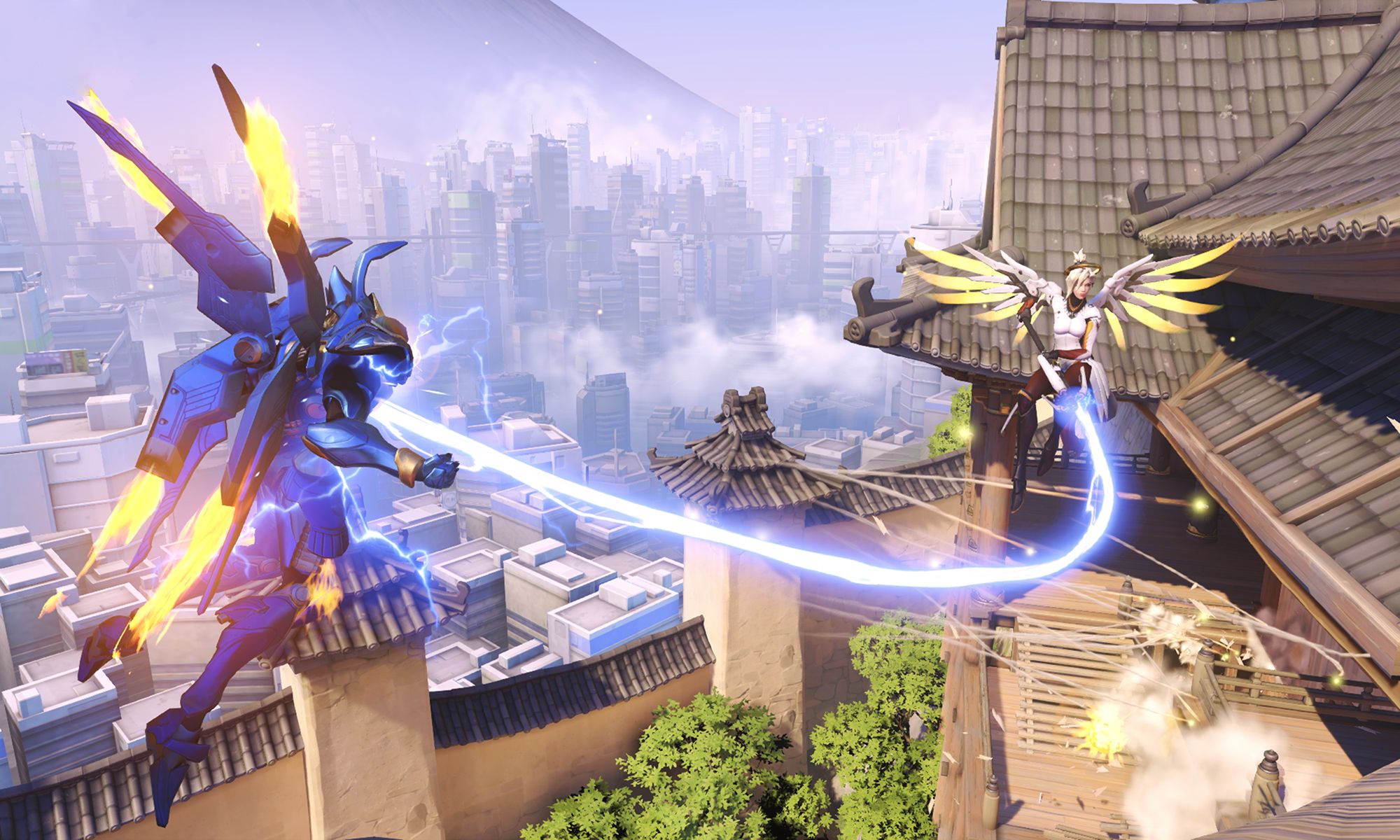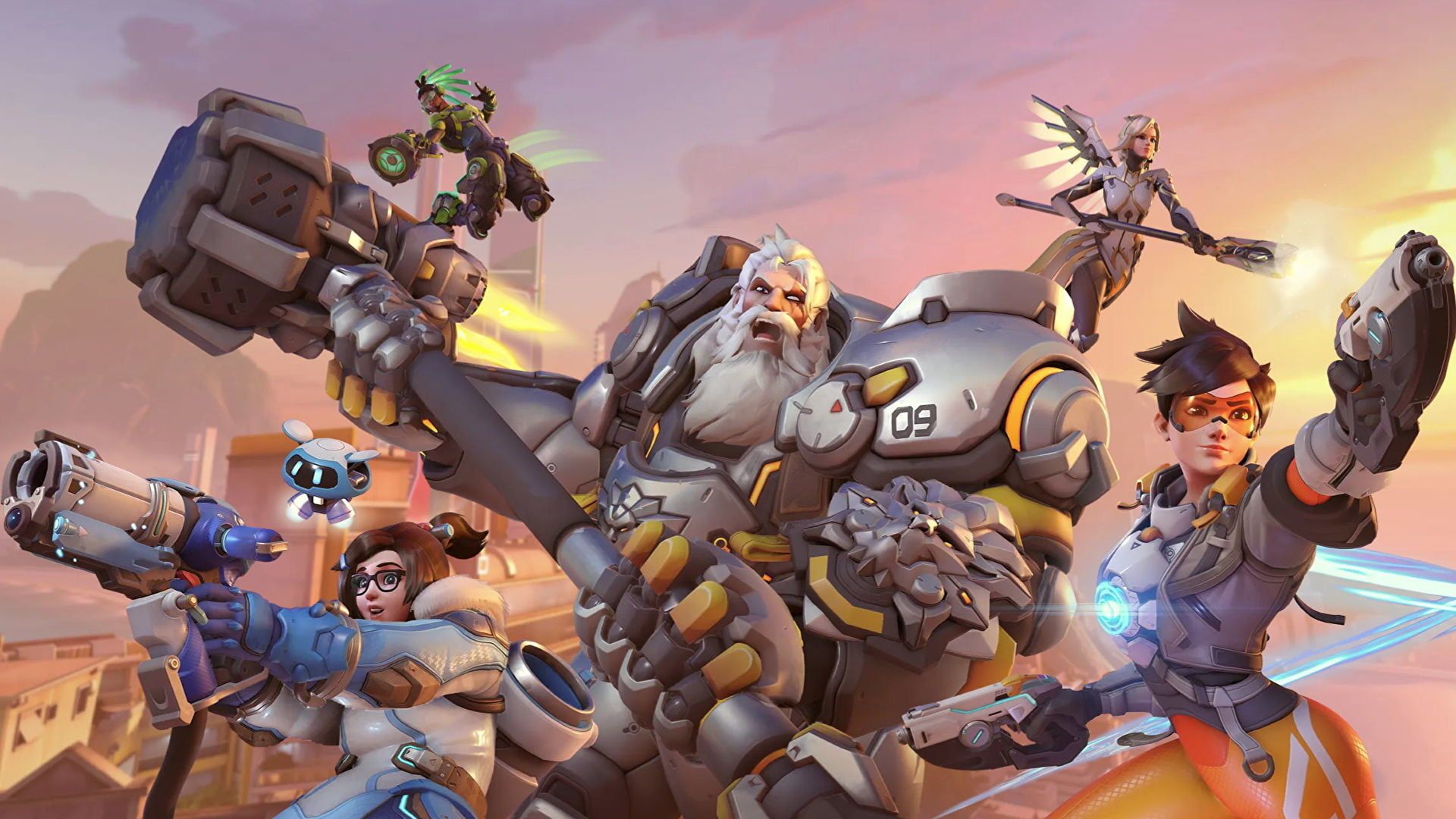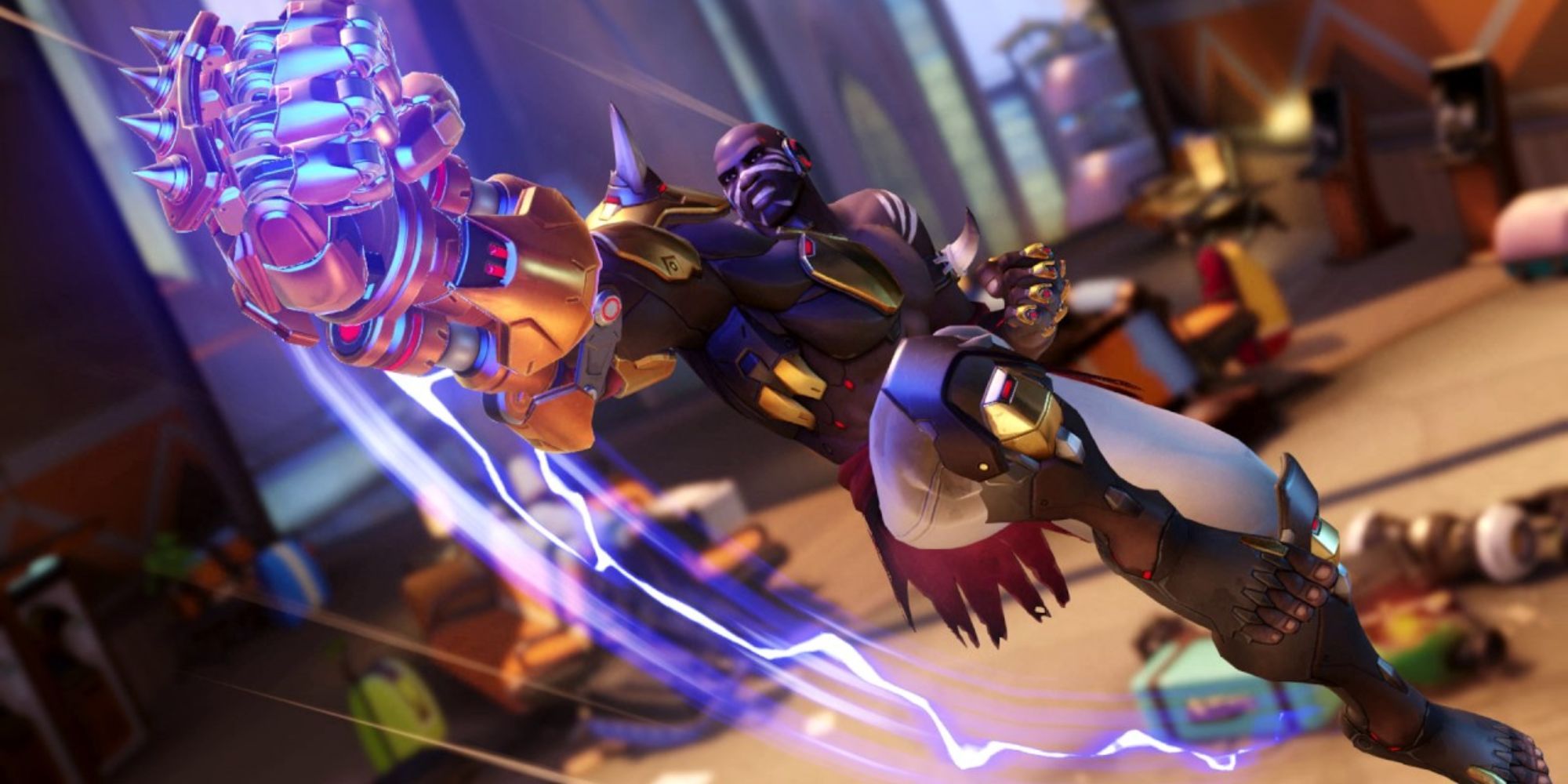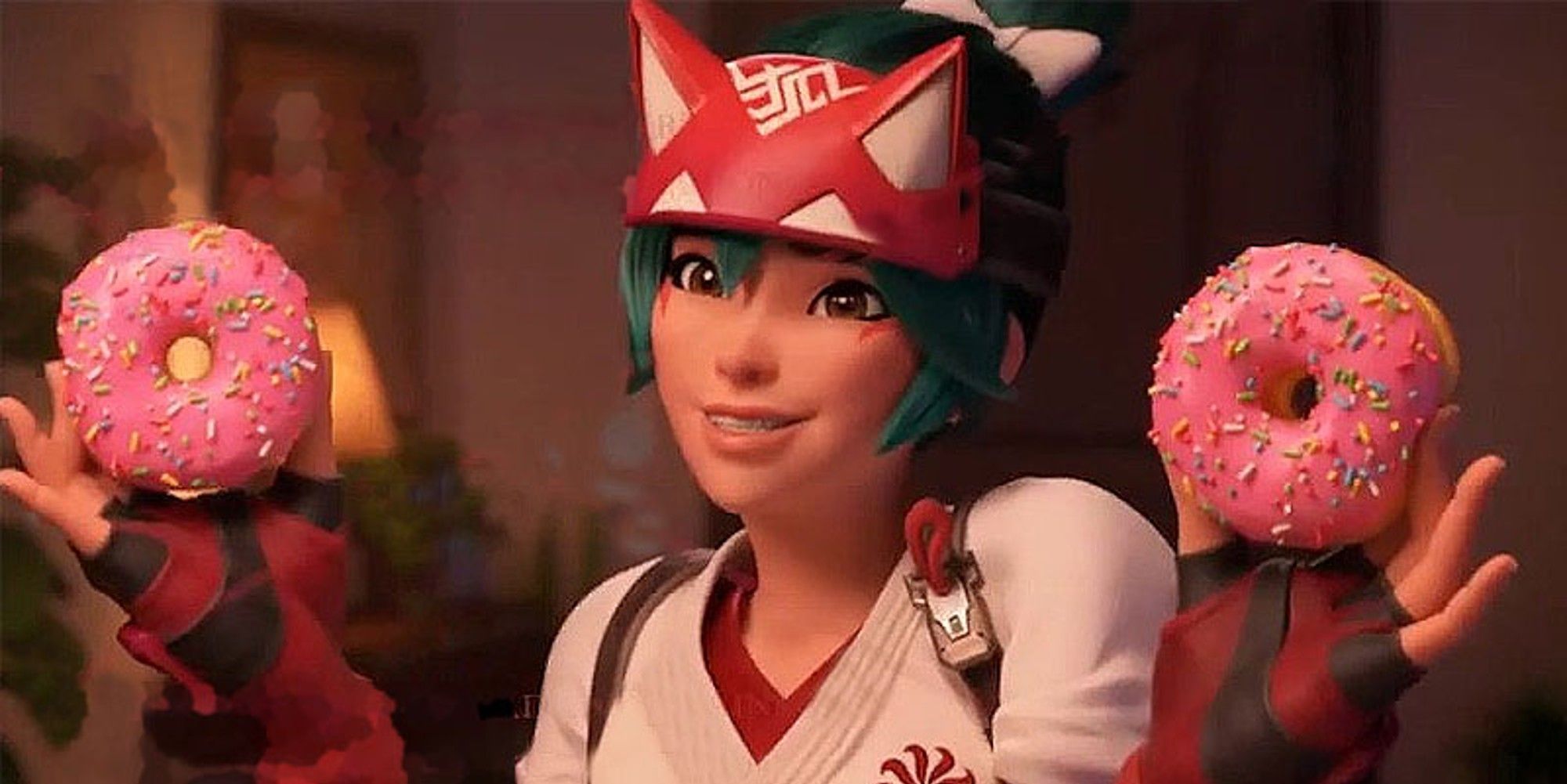Overwatch defined my first steps into adulthood. I was in my first year of university when it came out, and remember watching my flatmates jump into the beta as they hyped it up as the next big thing. I’d never played a Blizzard game before, and at the time it was an untouchable bastion of goodwill defined by countless classics. Not so much these days. This was its first new IP in decades, and it had all the ingredients to be a masterpiece.
In a landscape filled with gruff military dudes and futuristic warfare emerged a bright, colourful, diverse, and experimental game that pushed the genre forward and tried new things in fresh, exciting ways. Each match was fast and rewarding, while its sprawling cast of heroes all connected with players and meant something to them. It was evolutionary, but this innovation would bring with it some irksome industry trends and a complacency that would see Blizzard transform into a company that is now widely despised. How things change.
For the first couple of years, Overwatch was unstoppable. Each new hero was a major event, hyped up with months of speculation as players tried to guess who was coming our way next by digging into the game’s files or drawing from small clues left behind by Jeff Kaplan and friends. Sombra, Doomfist, Orisa, Ashe, Ana, Moira, and Brigitte were all big deals, igniting imagination across the fandom with how their relationships intertwined with the existing roster and how their position in the narrative would come to play an important role.
It was the biggest shooter in the world for a long time. Blizzard eagerly celebrated new player milestones on social media, while seasonal events became an all-encompassing occasion in the shooter space before the days of battle passes and live service updates. It was both ahead of its time and constrained by the formula it existed within, as additional game modes introduced as part of big updates and quarterly events never lived up to the base experience it was built upon. Junkenstein’s Revenge, Overwatch Archives, and Winter Wonderland were great fun, but fighting against bullet sponge AI wasn’t what this game was about, and hoping to expand on this universe only served to highlight its shortcomings.
We also need to talk about loot boxes, since Overwatch was responsible for increasing their popularity outside the mobile space. Ultimate Team was already a thing, but Blizzard showcased how easily cosmetic items could be monetised through random packages of goodies earned by either levelling up or buying them outright. I had friends who would set aside entire evenings during seasonal events to grind for boxes, hoping that Blizzard would be kind enough to let a legendary skin fall into their laps. None of them were playing for fun, instead waiting for that brief hit of serotonin that comes with a rare drop. Or they could spend money, and as the profits have long shown, so many of us went and did just that.
Overwatch’s corporate identity was clear to see through its diverse cast and clear attempts at inclusion, made worse by queer characters who were never given any strong narrative within the world itself. On the surface it was a bold statement, but dig any deeper, and you were left wanting so much more as Blizzard chased demographic approval. Its universe had so much potential for excellent stories and worthwhile sociopolitical commentary, but this clear ambition was brushed aside as the years went on in favour of recycled seasonal events and development of a sequel that is only now lumbering towards the finish line. I once looked up to Overwatch, but now I can’t help but view its failings and cynical business practices for what they really are. I still love so much about it, and the warm memories it brings to the forefront of my mind are clear proof that Blizzard struck gold with this one.
There’s also the porn. Oh my goodness there was so much porn. Overwatch porn hit harder than Tory austerity in a low-income council estate on the outskirts of Birmingham. I suppose it’s a testament to how much we loved these characters that fans were able to create detailed animated films of their main being drilled into oblivion. I respect that dedication, yet it also highlights how blatantly sexualised so much of the cast was, with many of their designs intentionally drawing in the male gaze with conventional body types and poses drawing our eyes to very specific parts of the body. Most of the girls were clearly designed by dudes. \
Of course, we had awesome women like Mei and Zarya amongst the cast, but there was D.Va, Tracer, and Widowmaker strutting their stuff alongside them. Overwatch was a real sticking point in our development as horny gamers, and a willingness to embrace sexuality in our games and view it as something to no longer be ashamed of. Overwatch was a stepping stone to this point, but a stone covered with the slippery moss of the mid ‘10s Whedonised feminism, where the best way to make a female character strong was to make her sexy too. Putting aside the smut, I was invested in some of the game’s queer ships for years, whether it be through tasteful fanart or brilliantly written fiction that understood these characters better than Blizzard ever will. Pharmercy till I die. You know Overwatch was something special because it made you care, and the relative indifference from Blizzard in the years since is almost upsetting.
Overwatch 2 was announced much too early, likely to pave over controversy at the time surrounding the company and its many scandals. We were given an awkward glimpse at PvE content that wasn’t ready for the spotlight in the slightest, while progression systems linked to certain characters have been dumped entirely in the version coming next month. Blizzard didn’t know what it wanted the sequel to be, and it still doesn’t, so we are stepping hesitantly into a future where I desperately hope this hero shooter can earn its place. The original game is being shut down as it arrives, with its younger sibling intended to replace everything it stood for as heroes, cosmetics, and everything else is carried across as part of a hopefully seamless transition. I’ll miss what is being left behind, and so will many others.
Overwatch will forever and always be a shooter classic, but my heart sinks when I think about how its once pristine legacy has been dragged through the dirt in service of a future that right now still seems so unclear. I formed so many memories around long nights experimenting with new heroes or diving into seasonal events with life-long friends by my side. Few games have ever managed to ignite that sense of passion within me, and that alone is an achievement worth celebrating. Now, as the servers prepare to switch over for good, I’m left mourning the empty void that once defined an entire part of my life.
The world could always use more heroes, but I’m on the fence about whether it needs Overwatch 2.
Source: Read Full Article



